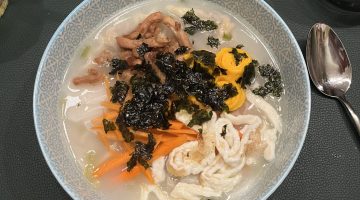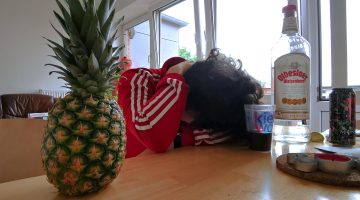Do you depend on a nightcap, a drink taken shortly before bedtime, to enhance your sleep? Especially during this year-end season, with chilly weather and Christmas markets, many people partake in a hot glass of wine before going to bed. However, it’s important to be cautious, as such a habit can worsen not only insomnia but also gout symptoms.
Quick Sleep, Yet Insomnia Calls
Drinking alcohol to overcome insomnia may actually worsen sleep troubles. While it is true that alcohol can help you fall asleep quickly by activating the calming neurotransmitter called ‘GABA (Gamma-aminobutyric acid),’ it doesn’t help with real deep sleep at all. The calming effect of alcohol shortens the time leading to going to bed, but it eventually results in a worse quality of sleep. Aristidis Iatridis, M.D., a pulmonologist and sleep medicine specialist at Piedmont said, “The part of the airway that runs from the voice box to the back of the throat is held up only by muscle, but when you fall asleep muscle goes slack … In some people, it goes so slack the airway obstructs and they wake up choking and gasping for air. Because alcohol is a muscle relaxer, it can make this problem even worse.“
Alcohol breaks down approximately six hours later after absorbing into the body. During this, it triggers awakenings, making you feel unrested even when asleep. The airway muscles that are relaxed by GABA can lead to snoring and sleep apnea, causing sleep disorders and disturbing sleep rhythms. If you drink alcohol right before bedtime, the alcohol irregularly functions in the hypothalamus of the brain, which controls sleep – Light sleep (REM) time increases, while deep sleep (non-REM sleep) time decreases.
Improving Your Sleep Habits is a Priority
If the purpose of drinking alcohol is to get an undisturbed sleep, you should not rely on alcohol alone but improve your sleep habits first. Avoid coffee and cigarettes, and try to refrain from eating, especially stimulating foods. In addition, turn off your TV/smartphone at least two hours before going to bed. It is also helpful to make the room temperature slightly lower than usual. When the room temperature is high, you unconsciously use a lot of energy to maintain a constant body temperature. The habit of binge sleeping on weekends or taking excessive naps negatively impact deep sleep as well. If you continue to struggle with the issue despite these efforts, it’s advisable to consult a specialist.
Personally, I recommend using a couple of drops of aroma oil on your pillow. It helps to create a more calming atmosphere and contributes to a peaceful night.
As we approach the end of this year, may it be marked by moderate celebrations and peaceful nights of restful sleep for everyone.
![FHews – [ fju:s]](http://fhews.de/wp-content/uploads/2015/05/fhews_logo2_3B8ACC.jpg)











No Comment